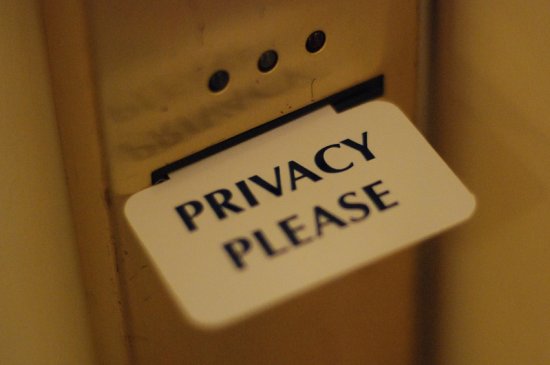Debt is a funny thing. You can amass a bunch of it and, for the most part, creditors can't reveal what you owe to anyone. Even if your debt goes delinquent, collection agents can't reveal your past-due status to employers, your contracts or anyone else. The only way this can be revealed is if the creditor has to file a lawsuit to try and collect the debt or files to foreclose on your home. Foreclosure requires a public notice, usually in the newspaper, that anyone can see.
Most lawsuits are public if anyone happens to see that your name is on a docket or someone runs a public records search. For the most part, your financial transactions are as private as you want them to be. You may worry that if you file bankruptcy, because it is a matter of public record, everyone will know. But rest assured, just because something is in the “public record” doesn't mean that any of the public that you know will be aware of it.
The main way that other people easily become aware of your debt is through foreclosure notices. If you are interested in using bankruptcy to avoid foreclosure, filing before the notice is published will protect your reputation. For someone to find out that you have filed bankruptcy, they have to be looking for it and must have access to the federal court filing system.
This system is called PACER (Public Access to Court Electronic Records). Anyone can register for a PACER account, but you have to know how to do this and go out of your way to do it. You must secure your PACER account with a credit card because searches incur a charge of ten cents per page. Most people don't know the PACER system exists, don't have access to the PACER system and would be dissuaded by the registration process. Typically it's used by law firms, law students, legal researchers and some journalists.
Outside of this, the only way someone will know that you've filed bankruptcy is if you tell them or they happen to run into you at your attorney's office or the federal courthouse for a bankruptcy meeting or hearing. If you file Chapter 13 and want to have your payments paid through a payroll order, you would inform your payroll department at your workplace. Otherwise, unless they recheck your credit periodically (this happens with some security clearance jobs), your employer won't know either.
In fact, your money problems are most likely to come to light if you let them linger and worsen. Depending on your debt scenario, bankruptcy may be a viable option to get a clean slate. If you have a high amount of unsecured debts, Chapter 7 can help vanquish those with a simple filing. If you have unsecured debts and are trying to prevent foreclosure of your home or repossession of your auto, a Chapter 13 may be better.
Come in for a free consultation with one of the North Carolina bankruptcy experts at the law offices of John T Orcutt. We'll take a look at your unique debt circumstances and advise you the best way to deal with your debts – and we take your privacy very seriously.
Most lawsuits are public if anyone happens to see that your name is on a docket or someone runs a public records search. For the most part, your financial transactions are as private as you want them to be. You may worry that if you file bankruptcy, because it is a matter of public record, everyone will know. But rest assured, just because something is in the “public record” doesn't mean that any of the public that you know will be aware of it.
The main way that other people easily become aware of your debt is through foreclosure notices. If you are interested in using bankruptcy to avoid foreclosure, filing before the notice is published will protect your reputation. For someone to find out that you have filed bankruptcy, they have to be looking for it and must have access to the federal court filing system.
This system is called PACER (Public Access to Court Electronic Records). Anyone can register for a PACER account, but you have to know how to do this and go out of your way to do it. You must secure your PACER account with a credit card because searches incur a charge of ten cents per page. Most people don't know the PACER system exists, don't have access to the PACER system and would be dissuaded by the registration process. Typically it's used by law firms, law students, legal researchers and some journalists.
Outside of this, the only way someone will know that you've filed bankruptcy is if you tell them or they happen to run into you at your attorney's office or the federal courthouse for a bankruptcy meeting or hearing. If you file Chapter 13 and want to have your payments paid through a payroll order, you would inform your payroll department at your workplace. Otherwise, unless they recheck your credit periodically (this happens with some security clearance jobs), your employer won't know either.
In fact, your money problems are most likely to come to light if you let them linger and worsen. Depending on your debt scenario, bankruptcy may be a viable option to get a clean slate. If you have a high amount of unsecured debts, Chapter 7 can help vanquish those with a simple filing. If you have unsecured debts and are trying to prevent foreclosure of your home or repossession of your auto, a Chapter 13 may be better.
Come in for a free consultation with one of the North Carolina bankruptcy experts at the law offices of John T Orcutt. We'll take a look at your unique debt circumstances and advise you the best way to deal with your debts – and we take your privacy very seriously.

